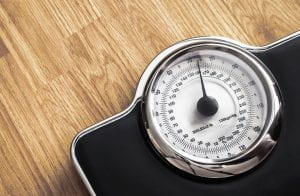More than 93 million Americans are obese. That’s nearly 40 percent of the U.S. population. Researchers and healthcare providers have invested time and money in studies to explain why so many Americans are so overweight and what our society can do about it
In addition, there is a growing body of evidence about the social and emotional effects of obesity in our society. A systematic review published in the journal Obesity Reviews takes a broad look at discrimination against people who are obese.
After a comprehensive review of studies, researchers identified nine articles that answered the question, “are people who are overweight or obese discriminated against at higher levels compared to people who weigh less?”
The studies generally define discrimination as negative attitudes and beliefs that result in unequal treatment, stereotypes, rejection or prejudice towards people because they are overweight or obese. Eight of the studies were conducted in the United States and one in Sweden.
Not surprisingly, the meta-analysis found that people who are overweight or obese do indeed experience greater discrimination compared to people who weigh less. And the perceived discrimination increased at higher weights.
Combining data from all of the studies, the reviewers found that 5.7 percent of individuals at normal weight felt they experienced discrimination in contrast to 19.2 percent for people considered overweight and 41.8 percent for those considered obese.
Gender and race played a role too. Women were significantly more likely to report discrimination due to their weight compared to men. Researchers across the studies speculate this is related to Western society’s emphasis on thinness as a quality that makes women attractive. And Caucasian-American men and women were also significantly more likely to report discrimination compared to African-American individuals, most likely because of different physical ideals in African-American culture.
The studies found discrimination occurred across a range of settings including the workplace, healthcare, stores, on public transportation and in the criminal justice system. Women were more likely to report work and healthcare-related discrimination than men.
What’s more, there is compelling evidence that weight discrimination has detrimental effects on health. One article published in BMC Medicine makes the case that the stigma associated with being overweight leads obese patients to receive poorer healthcare and experience poorer health outcomes.
And a review article published in the journal Current Obesity Reports found that the stigma associated with being overweight or obese leads to behaviors and physiological stress responses that contribute to even more weight gain including binge eating, increased food consumption and lower levels of physical activity.
How do we, as a society, solve this problem? The answers seem to be in training healthcare providers to deliver better care and ultimately lessen the negative effects of weight stigma, incorporating anti-stigma messages in obesity prevention campaigns, with the primary focus being on health and not weight and legislation to prevent weight-based discrimination.




Speak Your Mind